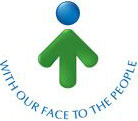Corticotropin
What is corticotrophin?
Corticotrophin is a polypeptide hormone produced by the pituitary gland. It is sometimes also known as adrenocorticotropic hormone (ACHT). Corticotrophin stimulates the release of corticosteroids, glucocorticoids and steroid hormones from the adrenal glands.
Medical uses of corticotrophin
Corticotrophin is mainly used in tests to diagnose conditions of the adrenal and pituitary glands such as:
• Cushing's syndrome (an endocrine disorder caused by high levels of cortisol in the blood); • Addison's disease (an endocrine disorder where the adrenal glands produce only limited amounts of glucocorticoids); • congenital adrenal hyperplasia (refers to a group of inherited adrenal gland disorders); • Nelson's syndrome (sometimes occurs following the removal of both adrenal glands as performed to treat Cushing's syndrome and is the rapid development of growths on the pituitary gland).
It has previously also been used in the treatment of:
• infantile spasms or convulsions; • adrenal insufficiency (reduced output of adrenal hormones as occurs in Addison's disease and some forms of congenital adrenal hyperplasia).
Effects on performance
Corticotrophin is used by athletes in order to increase the amount of androgens secreted by the adrenal glands as these are converted to testosterone. However, use also raises cortisol levels which increases gluconeogenesis (the production of glucose) and hence raises blood glucose levels. This is achieved by the use of amino acids, transported from muscle to the liver to be converted into glucose and also a reduction in the use of glucose by the cells.
All of this means that the positive androgenic effects are cancelled out by the catabolic effect (breakdown of muscle tissue to release amino acids) and so corticotrophin has no benefit and may even be detrimental to performance.
Side-effects of corticotrophin
Side-effects of long-term corticotrophin use are similar to those of long-term corticosteroid use due to corticotrophin’s role in stimulating the release of corticosteroids:
• stomach pains, nausea, or vomiting;
• indigestion;
• increased appetite and subsequent weight gain;
• acne, or other skin problems;
• swelling of face, eyelids, or lips;
• unusual tiredness or weakness;
• irregular heartbeat;
• menstrual problems;
• muscle cramps, weakness or pain;
• irregular bruising and poor healing;
• hallucinations;
• confusion, excitement, restlessness, mood swings.
S2. Peptide hormones, growth factors and related substances
S4. Hormone and metabolic modulators
S5. Diuretics and other masking agents
M1. Manipulation of blood and blood components
M2. Chemical and physical manipulation
Substances and methods prohibited at all times







